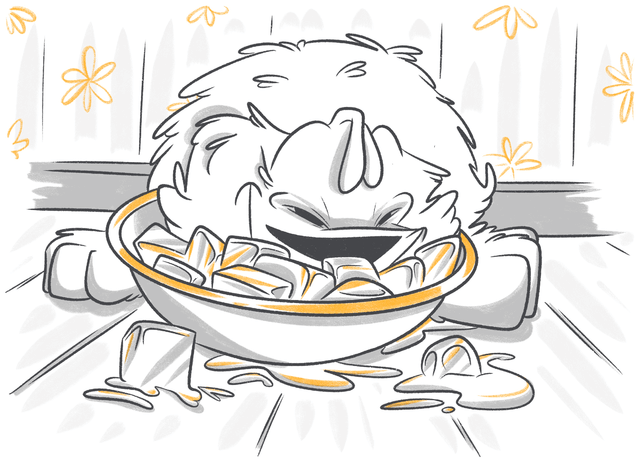There’s nothing like a refreshing drink with lots of ice on a hot summer day, don’t you agree? Similarly, our canine companions often get undoubtedly excited when we give them ice cubes or when we put ice in their water bowls, with some even biting and chewing on the ice cubes like popsicles. But when we talk about our dog’s health and safety, it makes us wonder: can dogs have ice, and is ice good for dogs?
In a general sense, yes, dogs can eat ice. Hydration is important for our canine friends, and an ice cube is just frozen water. In many cases, offering ice cubes to our dogs is generally safe and can help keep them hydrated. However, we should also be aware of the potential risks. Below are some precautionary measures to consider.
Stop Googling - Ask a Real Vet
Content:
- Are Ice Cubes Bad for Dogs to Eat
- Can Ice Damage Your Dog Teeth
- Why Do Dogs Like Ice Cubes
- FAQs
- Conclusion
Are Ice Cubes Bad for Dogs to Eat
Ice cubes are generally safe for dogs to eat. However, they also have the potential to cause harm. So when exactly is ice bad for dogs?
Exhibit 1: Dog Bloat
For example, right after a long dog walk, a dog eats ice and drinks too much water too fast from a water bowl with ice in it. The dog is then diagnosed with dog bloat, a life-threatening condition where the stomach twists and involves gas that is trapped inside. While dog bloat isn’t directly caused by eating ice per se, excessive drinking of water increases a dog’s risk of developing the condition.
Exhibit 2: Choking
Say a dog became so excited about eating a large piece of ice that it caused a blockage in their airway before the ice had the chance to melt. According to RSPCA research they then start choking, causing a pet emergency.
Other examples:
Dogs with swallowing and chewing issues, such as those with dental disease, neurological disease, or upper airway disease, may find it difficult to bite, chew, or swallow cubes of ice.
Biting and chewing on ice can also cause tooth issues. More on this below.
To watch out for signs when something’s amiss, such as accidents while your dog is chewing on ice, a high-quality pet camera like the Pet Camera is a good investment. With its features and related services, you’ll be able to monitor your pet 24/7, helping you address any symptoms early on.
Can Ice Damage Your Dog Teeth
Because ice cubes are hard, especially when extremely frozen, they may take a toll on your dog’s teeth when they vigorously bite on them. The bigger and harder the ice cubes are, the higher the risk of your dog getting a tooth fracture.
In addition to this, frequently chewing on hard things such as ice may cause damage to your dog’s tooth enamel. To prevent this from happening, it’s better to offer smaller ice cubes and give ice only in moderation.
Because dogs may be susceptible to pet emergencies such as tooth fractures, it is wise to invest in a pet Emergency Fund that covers pet emergencies with terms that are pet- and pet-owner-friendly. Petcube’s Pet Emergency Fund is a fitting example of this.
Why Do Dogs Like Ice Cubes
If you noticed your dog’s liking for ice cubes, you might be wondering, why do dogs love ice cubes?
For one thing, dogs don’t sweat the same way as humans. Instead, they pant and release sweat through their paw pads. With this, they may find other ways to cool themselves. One reason dogs like ice cubes is because they help cool them down. On the other hand, they may also like ice cubes because of the sensation or their compulsion to chew. And, simply put, some dogs just like to play with ice cubes.
FAQs
Can I put ice in my dog’s water?
The short answer is yes. However, it is important to make sure that they don’t drink too quickly to prevent dog bloat.
Is ice good for a dog's teeth?
While ice has some benefits for dogs, such as providing hydration when needed, there is a potential for it to harm their teeth. Apart from the risk of breakage, it can also wear their tooth enamel.
Can I give my puppy ice cubes for teething?
Since your puppy’s teeth are fragile and are still in the development stage, ice cubes may be too tough for their teeth. Not to mention, it can also be a choking hazard since they may swallow the ice cubes whole when they get too excited. For such reasons, it’s best not to give your puppy ice cubes for the time being.
Conclusion
Ice can be a fun treat to offer your dog on occasion. However, precautions must be taken to avoid potential risks. Regarding health concerns, consulting with your veterinarian is recommended to assess your dog’s specific case.
Was this article helpful?
Help us make our articles even better









